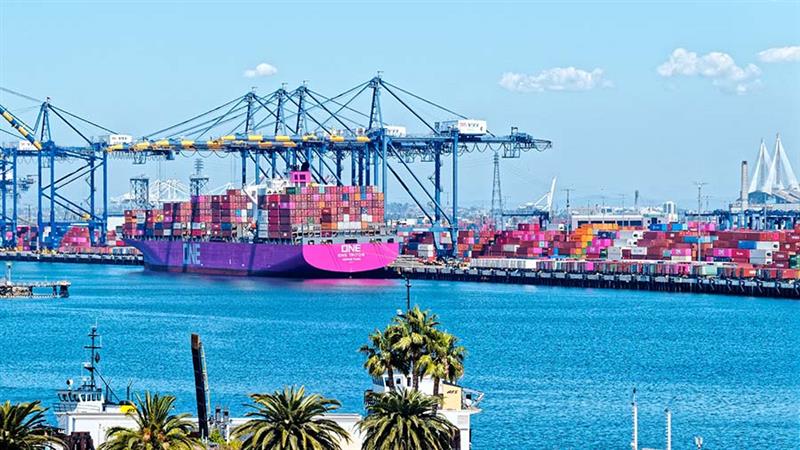China’s New NGO Legislation: A Blessing or Curse for Foreign NGOs?
 By Elizabeth Leclaire
By Elizabeth Leclaire
Governments across the globe have consistently acknowledged the benefits of non-governmental organizations (NGOs) in combating environmental and social crises, and China’s leaders have recently pushed for an increase in foreign NGOs throughout the nation.
China’s National People’s Congress (NPC) has released the second draft of the Law on the Administration of Overseas Non-Government Organizations, which will allow for foreign NGOs to establish an office (referred to as a “mainland office”) in China. The NPC is expected to readdress the draft in the near future, as the period to submit public comments or concerns regarding the draft’s current state closed on June 5th.
Under the new regulations, foreign NGOs are no longer required to first locate a Government Supervisory Entity (GSE) willing to serve as a sponsor. A GSE is a ministry of China which sponsors the foreign NGO during its registration process. Foreign NGOs have often found locating a GSE particularly difficult, as many GSEs are unwilling to risk associating with controversial foreign NGOs.
Although the current draft has expanded foreign NGO freedom by eliminating GSEs from the registration process, the law also includes several complicated stipulations that a foreign NGO must carefully abide by so as to not expose itself to legal liability.
Establishment Qualifications
Foreign NGOs hoping to establish operations in China must ensure that the scope of their activities fall within the NPC’s list of appropriate NGO undertakings: education, health, charity, environmental protection, culture, science and technology, sports, and economy.
In order to establish a mainland office in China, the foreign NGO “parent” institution, referred to as the competent operational entity (COE), must have already operated for over two years and must be capable of assuming civil liabilities. Civil liabilities typically arise from breach of contract or negligence and are usually settled through payment as a form of compensation.
![]() China Launches New Preferential Tax Policies for Small Low-Profit Enterprises
China Launches New Preferential Tax Policies for Small Low-Profit Enterprises
Application Process
The application process for foreign NGOs is lengthy, and even well-established NGOs should be prepared to wait for at least several months before to receiving approval from China’s public security authorities.
In order to apply, foreign NGOs must first receive written consent from the corresponding COE. Once obtained, the foreign NGO has 30 days to apply for establishment with the relevant registration authority. Applicants will be required to provide documentation verifying the consent of the COE, source of funding, necessary NGO qualifications, and the absence of a criminal record for the chief representative of the China office.
The relevant registration authority is allotted 60 days to review all documentation and determine if the application will be accepted or rejected.
Restrictions and Regulations
Although foreign NGO establishment has been made simpler in the sense that an NGO will no longer rely on Chinese government sponsorship, foreign NGOs in China will still be faced with strict guidelines and regulations that hinder their scope of operations.
Foreign NGOs are strictly prohibited from engaging in any activities which may threaten China’s national unity, interests, order, or morals. Additionally, the NPC has banned NGO involvement in activities involving profit making, politics, or religion.
Foreign NGOs must annually submit papers documenting project implementation and fund usage to the COE for approval by November 30. The relevant Chinese registration authorities must also receive the same paperwork within 10 days after the foreign NGO receives consent from the COE. An annual work report, detailing a foreign NGO’s financial and account information must also be delivered to the COE and the registration authority by March 31st.
The NPC allows foreign NGOs to use funds from legitimate overseas sources or from acquired interest on Chinese bank accounts, but it is important to note that accepting donations is strictly prohibited.
Foreign NGOs will be issued five-year licenses, and reapplication is required 60 days prior to expiry in order to remain in China. In terms of employment, the pending NPC legislation prescribes that at least 50 percent of the staff must be Chinese nationals.
Temporary NGOs
The NPC has outlined separate guidelines for foreign NGOs looking to temporarily establish offices in China. These offices may only operate for one year, and must first locate a “Chinese Partner” to sponsor the NGO’s agenda. The NPC requires that a Chinese Partner be selected from state organs, people’s organizations, public institutions, or social organizations.
Aside from the limited operational time, and reliance on a Chinese Partner, temporary NGOs are regulated in a similar way as their long term counterparts.
![]() RELATED:NGO Activity in China Remains Limited, Despite Voiced Commitments to Reform
RELATED:NGO Activity in China Remains Limited, Despite Voiced Commitments to Reform
Legal Liabilities
Any foreign entity operating in China must be careful to protect itself against legal liabilities, and this is particularly relevant to foreign NGOs. Minor infractions of foreign NGO procedures can lead to fines up to 200,000 RMB. More serious violations are grounds for freezing bank accounts and detention of those found responsible for breaching the law. China’s public security authorities also reserve the right to examine and investigate all foreign NGO activities and may revoke licenses if the NGO is found to be engaging in any illegal activity.
Concluding Remarks
The implication of China’s pending foreign NGO law is doubled edged. In a strictly legal sense, this legislation expands foreign NGO independence and encourages their establishment. However, the numerous regulations included in the law may make the successful legal establishment of a foreign NGO challenging in practice.
Currently, many foreign NGOs register as businesses or operate unregistered in order to circumvent Chinese law. If passed, the Law on the Administration of Overseas Non-Government Organizations may in fact leave that practice unaltered or further discourage new entrants in China altogether.
|
Asia Briefing Ltd. is a subsidiary of Dezan Shira & Associates. Dezan Shira is a specialist foreign direct investment practice, providing corporate establishment, business advisory, tax advisory and compliance, accounting, payroll, due diligence and financial review services to multinationals investing in China, Hong Kong, India, Vietnam, Singapore and the rest of ASEAN. For further information, please email china@dezshira.com or visit www.dezshira.com. Stay up to date with the latest business and investment trends in Asia by subscribing to our complimentary update service featuring news, commentary and regulatory insight.
|
![]()
 Employing Foreign Nationals in China
Employing Foreign Nationals in China
In this issue of China Briefing, we have set out to produce a guide to employing foreign nationals in China, from the initial step of applying for work visas, to more advanced subjects such as determining IIT liability and optimizing employee income packages for tax efficiency. Lastly, recognizing that few foreigners immigrate to China on a permanent basis, we provide an overview of methods for remitting RMB abroad.
 Adapting Your China WFOE to Service China’s Consumers
Adapting Your China WFOE to Service China’s Consumers
In this issue of China Briefing Magazine, we look at the challenges posed to manufacturers amidst China’s rising labor costs and stricter environmental regulations. Manufacturing WFOEs in China should adapt by expanding their business scope to include distribution and determine suitable supply chain solutions. In this regard, we will take a look at the opportunities in China’s domestic consumer market and forecast the sectors that are set to boom in the coming years.
Managing Your Accounting and Bookkeeping in China
In this issue of China Briefing, we discuss the difference between the International Financial Reporting Standards, and the accounting standards mandated by China’s Ministry of Finance. We also pay special attention to the role of foreign currency in accounting, both in remitting funds, and conversion. In an interview with Jenny Liao, Dezan Shira & Associates’ Senior Manager of Corporate Accounting Services in Shanghai, we outline some of the pros and cons of outsourcing one’s accounting function.
- Previous Article China Regulatory Brief: Foreign Companies Allowed to Manufacture and Sell Video Game Consoles in China
- Next Article China Regulatory Brief: VAT Reform Expanded to Financial Sector, Shanghai New Foreign Residence Permit Rules





























